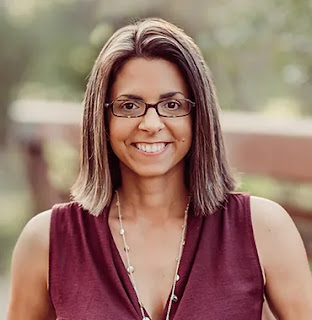Dawn Dais is the author of the new book The Sh!t No One Tells You About Divorce: A Guide to Breaking Up, Falling Apart, and Putting Yourself Back Together. Her other books include The Sh!t No One Tells You. She lives in Roseville, California.
Q: You write, “The ‘meantime’ of divorce is brutal. It's the time between the end of your marriage and the beginning of feeling normal in the new version of your life.” Can you say more about that, and about why you decided to write your new book?
A: Shortly after my divorce, when everything had gone ass over teakettle, a couple of my divorced friends reassured me that everything would be okay. They were a few years ahead of me on their divorce timelines and they knew from experience that things would eventually calm down.
They’d tell me, “Just give it time, everything will be fine, you guys will be fine. Just give it time.” I’d respond with, “Yeah, that’s great. But what the hell am I supposed to do in the meantime?”
I really wanted to write a book for people who are still going through their meantime. I wanted them to feel less alone during a really isolating time. I wanted to give them a place to come rage and laugh and cry with someone who understands that sometimes all of those emotions happen within a 20-minute span of time during divorce.
Q: What impact did it have on you to write the book?
A: This was by far the most difficult book I’ve ever written. I’ve never
written, rewritten, edited, cut, and flat out froze on any other book in the
last 15 years. I wanted to be as honest as possible in the writing of it while
still being conscious of the fact that I was writing in permanent ink about
quite a few other people whose lives were exploded along with mine. It was a
delicate dance that I hope I pulled off.
I was only about a year out from my divorce when I started writing this book and I was still very much in the middle of my meantime. Things were still raw and I while I think there is value in writing from that place, I was very aware that I was a work in progress when it came to healing.
Writing the book was tremendously therapeutic in a number of ways. The first way was that I literally dove into therapy before starting the actual writing. I wanted to get my head on straight before I started writing, so that I was writing something of value and not just a 200-page temper tantrum.
I mention in the book that I’m a big proponent of rage journaling, I even provide several chapters that act as rage journaling prompts. In many ways the first (and second and third) draft of my book was my version of rage journaling. My poor editor would send edits back that read, “This is all great, but we can’t use any of it.”
I’m grateful that she edited me and I’m also grateful that I had the chance to get my story out and onto paper; it was very therapeutic.
Finishing this book felt like the end of my meantime. I was done with that particular story, I processed the hell out of it through therapy and writing, and I was ready to put it behind me.
Q: What do you hope readers take away from the book?
A: I hope this book can simply act as a soft place for people to land during a really crappy time. I hope the book can help them realize that there are better things waiting for them on the other side of their meantime.
It can be really hard to imagine better days when the bad days fill up most of the calendar. So I just want to provide a little glimmer of, “Keep going, you are going to be absolutely dazzled by the version of yourself that is waiting for you just up the road a bit.”
Q: This book follows your other “The Sh!t No One Tells You About” books--how do you see its relationship to the other books?
A: My other Sh!t books were about parenting. It turns out divorce is decidedly less entertaining than parenthood. But the general idea behind all the books is that I’m giving readers a true-to-life, warts and all look into various aspects of life.
And both parenting and divorce can feel like really isolating endeavors when you are in the thick of them. People have a tendency to fold in on themselves during difficult times and my books are meant to be a bit of connection. I like to offer my readers honesty and humor and heart so that they feel less alone during crappy times.
Also, let’s be honest, a divorce book is a pretty natural progression following a series of books about parenting. It happens to the best of us.
Q: Anything else we should know?
A: I’ve spent a lot of time writing books about surviving various challenges of life. It’s really nice to be to a place where “surviving” is no longer the setting of my life. I’ve moved into “thriving” and it feels pretty damn good.
--Interview with Deborah Kalb


No comments:
Post a Comment